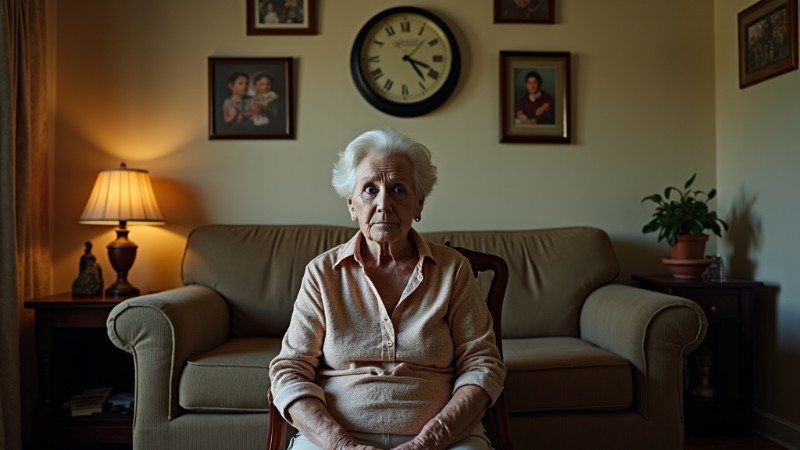Caring for a family member with a chronic condition or disability can be incredibly demanding. With 20% of Americans involved in some form of caregiving, caregivers must be offered support systems that help them maintain their well-being and continue their invaluable roles with renewed energy and resilience.
Caregivers often find themselves juggling multiple responsibilities, from managing medical appointments and medications to providing daily personal care.
This relentless pace can lead to caregiver burnout, characterized by feelings of overwhelm, frustration, and hopelessness. The toll extends beyond the individual, affecting relationships and diminishing the caregiver’s overall quality of life.
Without adequate support, the challenges of caregiving can escalate, making it imperative to seek assistance that alleviates some of the burdens.
This is where respite care steps in as a vital support system, providing caregivers with the necessary breaks to recharge and sustain their ability to care effectively.
Key Takeaways
Respite care is a vital support system for family caregivers, providing temporary breaks to recharge and sustain their ability to care effectively.
- Respite care offers caregivers a chance to rest, recuperate, and attend to their own health and personal needs, reducing the risk of burnout and improving overall well-being.
- There are various types of respite care services available, including in-home care, adult day programs, and overnight respite care, each designed to meet the unique demands of family caregivers and their loved ones.
- To maximize the effectiveness of respite care, it’s essential for caregivers to prepare their loved one for the transition, engage them in new activities during the respite period, and plan a smooth transition back home after the break.
Understanding respite care
Respite care is a form of temporary care provided to individuals who need assistance, allowing their primary caregivers to take a necessary break. Its primary purpose is to offer caregivers a chance to rest, recuperate, and attend to their own health and personal needs.
By stepping away from caregiving duties, even for a short period, caregivers can maintain their physical and emotional well-being, ensuring they remain effective and engaged in their caregiving roles.
Caregivers can rest, relax, and rejuvenate, which in turn can have a positive impact on their relationships with loved ones and overall sense of fulfillment.
Through the provision of respite care, families are able to sustain their social connections and relationships beyond the confines of caregiving duties, thereby mitigating the risk of feelings of isolation and loneliness that can arise from the intense focus on caregiving.
Respite care is not just a temporary solution but a critical component in the sustainable support system for family caregivers.
Types of respite care services
Respite care services are thoughtfully designed to meet the unique demands of family caregivers and their loved ones, providing a range of flexible solutions that cater to different situations and circumstances. Here are the different types of respite care:
In-home respite care
In-home respite care provides personalized support within the comfort of the caregiver’s home. Skilled professionals assist with essential daily tasks such as bathing, dressing, and managing medications. Using this type of respite care alleviates some of the caregiving burdens while ensuring that the individual receives the care they need in familiar surroundings.
Adult day programs
Some caregivers feel guilty leaving their elderly loved ones lonely while they are away. That is why adult day programs are here.
Adult day programs offer a structured environment where individuals can engage in socialization, meals, and recreational activities alongside their peers. These programs provide a supportive setting that promotes mental and physical well-being, giving family caregivers a valuable opportunity to take a break while knowing their loved one is engaged in enjoyable and meaningful experiences.
Overnight respite care
For caregivers needing extended breaks or planning a vacation, overnight respite care is an ideal solution. With this type of respite care, your elderly loved one will be in a temporary residence staffed by experienced professionals who can provide high-quality care throughout the night.
Overnight respite care offers peace of mind, ensuring that caregivers can enjoy a longer period of rest without worrying about their loved one’s safety and well-being.
Maximizing respite care experience
Ensuring the individual has a positive and fulfilling respite care experience involves thoughtful preparation and open communication.
Begin by selecting a respite care provider that meets their needs and preferences. Researching reputable agencies, reading reviews, and seeking recommendations from trusted sources can help identify caregivers who offer compassionate and competent services.
Visiting potential facilities or meeting with in-home caregivers beforehand allows family caregivers to assess the environment and establish a rapport, promoting a sense of comfort and trust.
Preparing the individual for the transition into respite care is equally important. Engage in a conversation about the upcoming change, highlighting the benefits such as opportunities for social interaction, participation in enjoyable activities, and the chance for personal relaxation.
Create a personalized care plan to ensure the respite care provider is fully aware of their medical needs, dietary restrictions, and personal preferences.
Detailed documentation facilitates seamless and effective care delivery, including medication schedules, emergency contacts, and specific care instructions.
To significantly enhance their experience, encourage the individual to engage in new activities during their respite period. Whether it’s joining a hobby group, participating in physical therapy, or simply enjoying a favorite pastime, these activities can boost their mood and overall satisfaction.
Lastly, planning a smooth transition back home after the respite care period ensures continuity of care and reinforces the benefits gained during the break. Discuss their experiences and any positive changes observed. Doing so can reinforce the value of respite care and encourage future utilization when needed.
By taking these proactive steps, family caregivers can ensure that their loved ones not only receive the necessary support but also enjoy a meaningful and enriching respite care experience.
Importance of support groups for family caregivers
Support groups are an essential resource for family caregivers, offering a platform to share experiences, receive emotional support, and gain practical advice.
These groups promote a sense of community and understanding, allowing caregivers to connect with others who are navigating similar challenges. Through shared stories and mutual support, caregivers can develop effective coping strategies and build resilience.
The rise of online forums and social media groups has also further expanded access to support networks, enabling caregivers to connect with peers globally. Virtual communities provide a convenient and accessible means for caregivers to seek support, share insights, and find solace in knowing they are not alone in their journey.
Training opportunities for family caregivers
Empowering family caregivers with the right skills and knowledge is crucial for effective caregiving.
Specialized training programs and workshops offer education in areas such as medication management, wound care, personal hygiene techniques, and communication strategies tailored to individuals with dementia or Alzheimer’s disease.
By enhancing their caregiving skills, caregivers can perform their roles with greater confidence and competence, reducing stress and improving the quality of care provided.
Educational opportunities also enable caregivers to stay informed about best practices and emerging treatments, ensuring they can adapt to the evolving needs of their loved ones. Continuous learning and skill development are key to maintaining a high standard of care and fostering a sense of achievement and control among caregivers.
Respite care serves as a critical component of support for family caregivers, offering a much-needed break from caregiving responsibilities while allowing them to focus on maintaining their overall health, managing stress, and nurturing relationships outside of caregiving.
By gaining insight into the advantages of respite care, identifying suitable alternatives, and accessing relevant community services, families can better manage the intricacies of caregiving, build resilience, and cultivate a stronger sense of well-being among caregivers, while also ensuring that their loved one receives the necessary support.















